#OTD on February 8, 1919, the eighth day of the Joint Committee of the Senate and the House in the Investigation of the Texas State Ranger Force (hereafter, “Canales Hearings”) took place in the Texas state capitol.
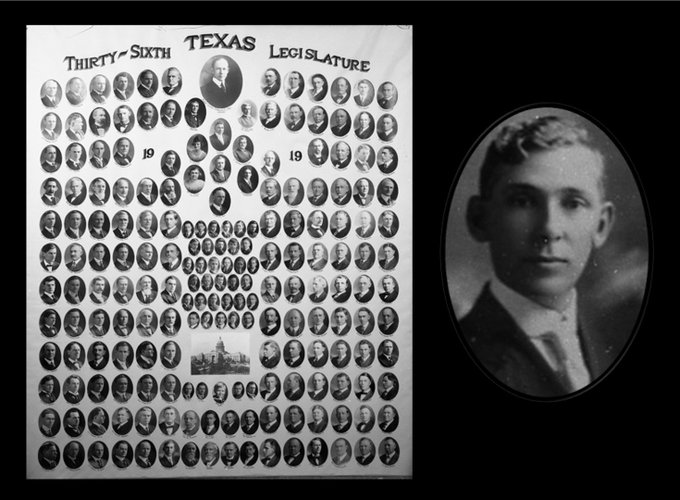
The day’s testimony and discussion show the wide scope of Ranger violence and the ways in which debates over the Rangers became entangled in debates over the U.S. entry into World War I and the draft.
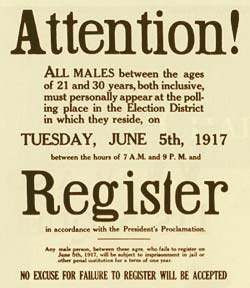
The first witness, Rio Grande City merchant C.E. Valle, strongly linked support of the Rangers to support of the War. Valle said that criticism of Rangers increased when they began enforcing the draft by arresting “deserters” and “slackers.”
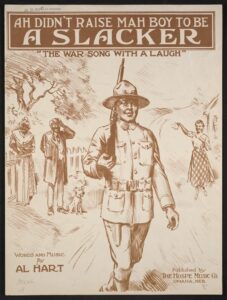
Aurelio Farfán, former colonel in the Mexican National Army under Díaz and Madero, followed. He described being assaulted and beaten by Tom Collins and Ranger J.J. Edds. “He [Collins] punched me with the muzzle of the gun & then he hit me with the gun over the head and took me to the closet where he locked me up . . . He cursed me and says , ‘If you come out of here I will kill you.'”
Edds and Collins’ behavior changed dramatically when U.S. soldiers showed up. Note that a century later, Edds’ revolver is being offered for sale for nearly $15,000, with his border service and role in combating “bandits” cited. https://www.gunsinternational.com/guns-for-sale-online/revolvers/handguns—european-revolvers/texas-ranger-sargent-john-j–edds-documented–38-caliber-revolver.cfm?gun_id=101708060
Several more witnesses offered evidence of mass murder by Rangers and vigilantes. Hidalgo County farmer J.J. Busby recalled seeing “the bones about five or six months” after seven “Mexicans” killed near Ebenezer. Mission attorney D.F. Strickland described seeing Captain Fox’s company “drunk in Brownsville.” Fox was later in command of the company that perpetrated the Porvenir massacre. Ethnic Mexicans were not the only targets of Ranger violence. San Angelo resident Thomas Johnson, a Black man who worked in a dry goods store, was arrested on suspicion of stealing from a railroad shipment. He was abducted by Rangers and taken to Sweetwater; one of his captors threatened him with mob violence. “I am going to come through there in a few days & bring my crowd over, & I am going to pick you up & you will never know what became of you.” When Johnson was released thanks to his wife’s efforts, his attorney, and the support of his (white) employer, he was sick and too weak to work. It took him two weeks to recover from his time in Ranger custody.
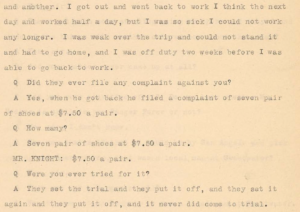
Some of the most consequential testimony came from political boss James Wells. Like Busby, he remembered the scene near Ebenezer. One day while driving the river road near Donna, he noticed vultures and a foul smell. https://www.tshaonline.org/handbook/entries/wells-james-b
“We went in there and there were four dead men, Mexicans, lying there side by side with their clothes on & everything . . you could see bullet holes right above the eyes, great big holes you could stick your finger in.” Seven more bodies were nearby.
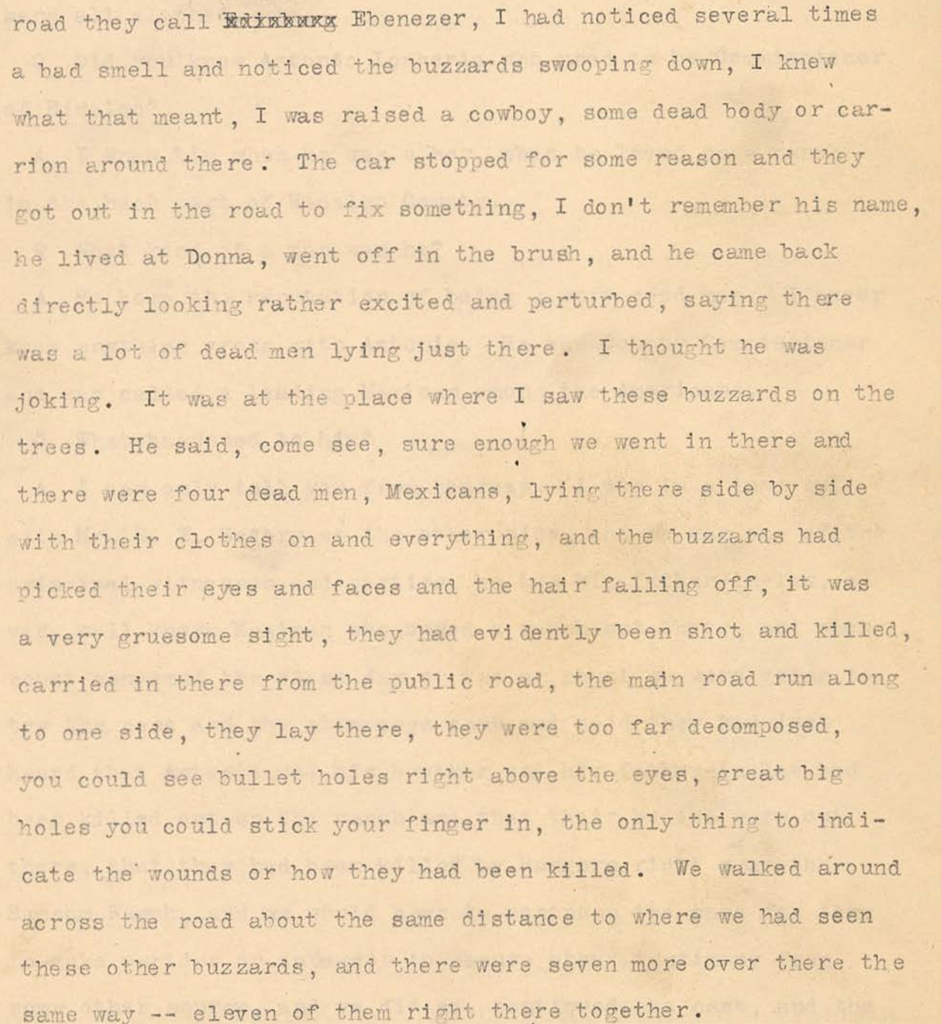
Wells also testified about the double murder of Antonio Longoria and Jesús Bazán, which had huge reverberations because of their social and political prominence. Their deaths ended a court case over a land dispute with developer S. W. Seabury. https://refusingtoforget.org/historical-markers/jesus-bazan-and-antonio-longoria/
He estimated 250-300 Mexican men were killed in Cameron and Hidalgo Counties. He tried to steer middle course, repeatedly asserting loyalty to past Rangers and support of the force as a whole. But the details of his testimony were damaging for the Rangers.
Recalling the ransacking of Deputy Sheriff Pedro Lerma’s house and threatening of his wife and children by Rangers, Wells testified he told Captains Hanson and Stephens that “if you will let me know when you want to come to search my house, I will shoot you between the eyes.”
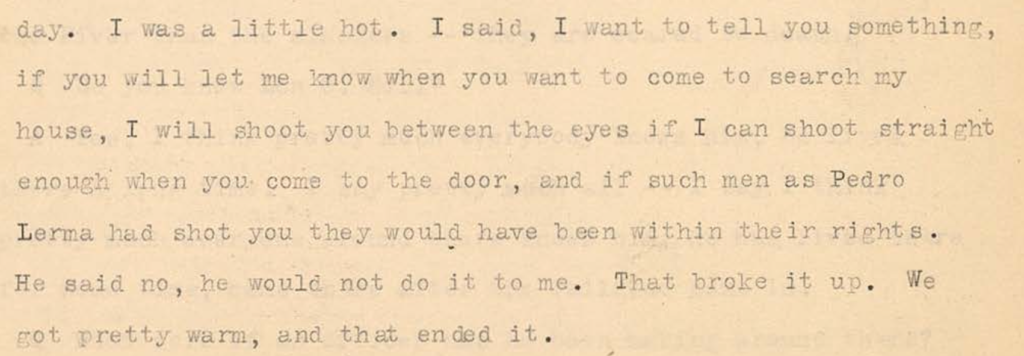
After several other witnesses and the filing of many supporting documents by Canales, the hearings were adjourned Saturday night until the following Monday, when our treatment of them will resume.
This thread is a part of the #OTD in Ranger history campaign that @Refusing2Forget is running this year. Follow this twitter handle or https://refusingtoforget.org/ranger-bicentennial-project/, and visit our website https://refusingtoforget.org/otd-calendar/ to learn more.
Key secondary sources for this thread include:
@BenjaminHJohns1’s Revolution in Texas (pp 169-175)
@MonicaMnzMtz’s The Injustice Never Leaves You (182-216)
Reverberations of Racial Violence
and Ribb, “Reader’s Guide to the Canales Hearings”
